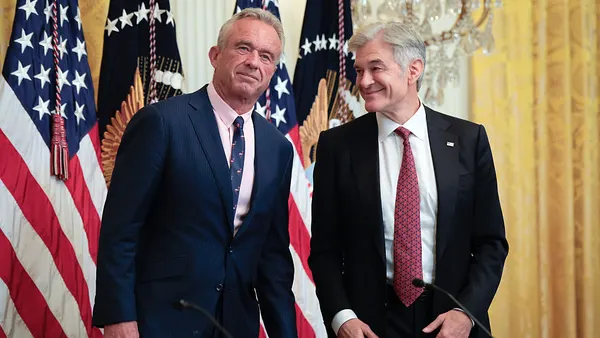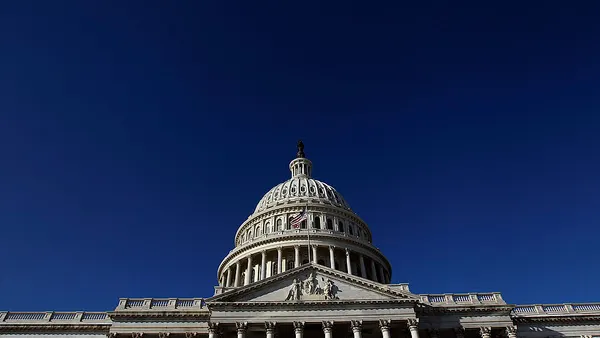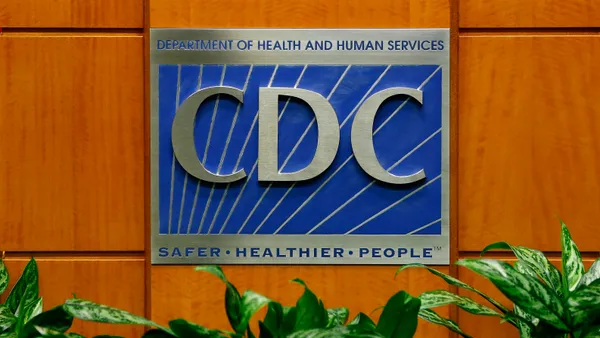Dive Brief:
- Bipartisan concern over misuse of addictive painkillers dominated sessions of National Governors Association last weekend, with governors deciding to bring the matter to President Obama this week.
- Governors were shocked in 2014, over 47,000 deaths in the U.S. occurred due to drug misuse, and opioids were shown to be the primary cause.
- The governors’ health and human services committee approved a proposal to devise a plan that would reduce opioid misuse via safer prescription protocols.
- This is another example of government stepping in to curb opioid misuse. Earlier this month, the White House announced President Obama would request in his fiscal 2017 budget plan $1.1 billion to build efforts to curb prescription opioid and heroin misuse.
Dive Insight:
Unexpected discussions and concerns last weekend at the National Governors Association over deaths in the U.S. from misuse of opioids -- primarily prescription painkillers and heroin -- has prompted governors to accept a proposal that would create safer protocols for drug prescriptions.
According to the The New York Times, Gov. Peter Shumlin (D-VT) and Gov. Matt Bevin of (R-KY) led the bipartisan effort at committee sessions to encourage action on the matter. Shumlin cited government data showing healthcare providers had written 250 million prescriptions a year for painkillers, a cause for concern since the CDC reported over 47,000 deaths in the U.S. in 2014 were accredited to drug overdose.
Bevin explained the roots of the problem were economic, and the solution must involve those who profit from drug distrubution. He and Shumlin decided to act after receiving little help from doctors and drug companies that did not want a numerical limit to prescriptions.
The governors’ health and human services committee approved Shumlin's and Bevin's proposal for protocol development. Plans will likely include include numerical limits on prescriptions, among other restrictions. Blue Cross Blue Shield's policies of requiring prior authorization for certain opioid prescriptions and limit for some patients to use a single drugstore for opioid prescriptions were seen as part of a possible model for states.
The governors expect pushback from drug companies, but are confident in their bipartisan collaboration.












